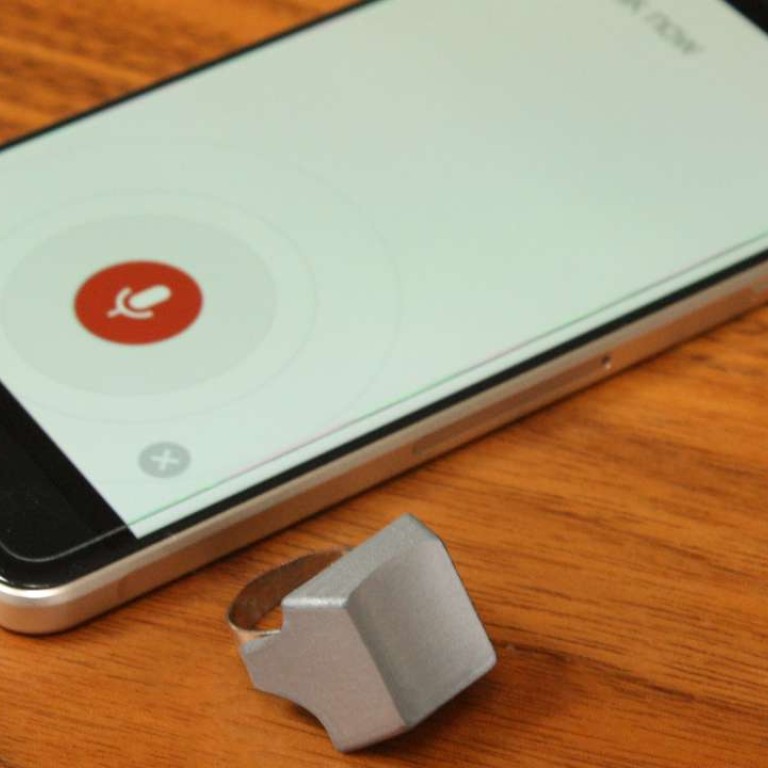
Hong Kong start-up takes wearable tech to the next level
A new ring gadget will have smartphone users looking like secret agents, but instead of transmitting sensitive codes, the invention delivers text messages or calls through vibrations straight into the ear.
Hong Kong start-up Origami Labs has developed a ring worn on the index finger, which uses bone conduction technology to deliver sound when the user places their fingertip next to their ear, in a gesture similar to that used by the US secret service. The ring can be paired with a smartphone’s voice assistant to perform tasks without looking at the screen.
“We see this as a new category of wearables that goes beyond activity tracking and starts to delve into some very powerful communications functions,” said Kevin Wong, co-founder and chief executive officer of Origami Labs.
“It emulates the core functions of your smartphone but does so in a screen-free, highly intuitive and honestly, a lot more fun way.”
The Orii ring falls under the umbrella of the Internet of Things, a growing area of connected devices ranging from wearable devices such as fitness trackers to smart fridges.
McKinsey & Company predicts the potential economic impact of the Internet of Things could reach as much as US$11.1 trillion per annum by 2025.
Origami Lab’s device connects to a smartphone using Bluetooth and can be used with the phone’s voice assistant to quickly open apps, dictate messages through a built-in microphone and check schedules.
Wong said the ring concept resonated most strongly with male professionals between the age of 25 to 40 and that the company plans to collaborate with designers to create versions of the ring with fashion in mind.
[Local] manufacturers actually aren’t making as much money as before so they have to find a way to transform their business models
The company is developing its own artificial intelligence technology to perform basic tasks with the goal of building a voice assistant capable of handling complex tasks using the ring.
“What we’re doing is building an [equivalent of a] four or five-year-old assistant, someone who can execute some basic tasks but do those basic things very well ... and lay a good foundation,” Wong said. “And then over time as the assistants continue to improve then its capability to do more complex things will evolve.”
The Orii ring was inspired in part by Wong’s father, who is visually impaired and was the founding member of Microsoft’s accessibility team.
The start-up sought input from visually impaired groups in Hong Kong, with Wong adding that these groups had similar requirements for the technology as the general public.
The company opted for a ring over a earpiece as Wong said earpieces are not designed to be worn all day as they can create humidity in the ear.
Origami Labs recently completed the Wearable IoT World accelerator programme at Hong Kong Cyberport and is now taking part in the Cyberport Incubation Programme.
Toa Charm, chief public mission officer for Cyberport, said there are 30 wearables start-ups in its programmes and that Cyberport helps match the fledgling companies with investors and manufacturers.
Charm said the programmes at Cyberport help ensure the city is developing new technology and exploring new business models for existing companies.
“Because of the costs in China and the competition in Asia, [local] manufacturers actually aren’t making as much money as before so they have to find a way to transform their business models,” Charm said. “They were not that proactive – now they are proactive in looking for things they can [work] on for the next few years.”

